Beat Ramon Llull (1232-1316)

Ramon Llull (1232[1] – June 29, 1315) (Pronounced /yoo-y(ə)/ (sometimes Raymond Lully or in Latin Raimundus or Raymundus Lullus, or in Spanish Raimundo Lulio) was a Majorcan writer and philosopher born into a wealthy family in Palma, Majorca, in the Balearic Islands, then part of the Crown of Aragon, now part of Spain. He wrote the first major work of Catalan language literature. Recently surfaced manuscripts show him to have anticipated by several centuries prominent work on elections theory. He is sometimes considered a pioneer of computation theory, especially given his influence on Leibniz.
Llull was well educated, and became the tutor of James II of Aragon. He wrote in Latin, Catalan, Occitan and Arabic. In 1265 he had a religious epiphany, and became a tertiary Franciscan. His first major work Art Abreujada d 'Atrobar Veritat (The Art of Finding Truth) was written in Catalan and then translated into Latin. He wrote treatises on alchemy and botany, Ars Magna, and Llibre de meravelles. He wrote the romantic novel Blanquerna, the first major work of literature written in Catalan, and perhaps the first European novel. Llull pressed for the study of Arabic and other then-insufficiently studied languages in Spain for the purpose of converting Muslims to Christianity.
Schopenhauer described Llull's conversion, as recorded in Johann Jakob Brucker's Critical History of Philosophy, Book IV, Part I, page 10. "Hence men who have led a very adventurous life under the pressure of passions, men such as kings, heroes, or adventurers, have often been seen suddenly to change, resort to resignation and penance, and become hermits and monks. To this class belong all genuine accounts of conversion, for instance, that of Raymond Lull, who had long wooed a beautiful woman, was at last admitted to her chamber, and was looking forward to the fulfillment of all his desires, when, opening her dress, she showed him her bosom terribly eaten away with cancer. From that moment, as if he had looked into hell, he was converted; leaving the court of the King of Majorca, he went into the wilderness to do penance." (The World as Will and Representation, Vol. I, § 68)
English Translation of the beginning of Felix or the Book of Wonders by Ramon Llull (1288-1289)
A man was sad and grieving in a foreign land. And He wondered at the people of this world and how little they knew and loved God Who had created and given the world to men in great nobilitiy and goodness. All this so that He may be loved and known by them. This man shed tears and cried because in this world God has so few who love, serve, and praise Him. And so that He be known, loved, and served, the same man now writes this Book of Wonders which is divided into ten parts, which are: God, Angels, Heaven,the Elements, Plants, Metals, Beasts, Man, Paradise and Hell. This man had a son he loved dearly whose name was Felix to whom he said these words: "Dear son wisdom, devotion, and charity are nearly dead and few are the men who follow the ends that Our Lord created them for. The fervor and devotion is not what is once was in the time of the Apostles and Martyrs, who suffered and died to know and love God. You are to wonder where charity and devotion have gone. Go about the world and wonder why mean cease to love, serve, and praise God. May all your life be in knowing and loving God. And grieve for the faults of those who ignore and scoff at Him.
Felix obeyed his father. He went through forests, mountains, and plains. Through hermitages, and towns, seeing princes and castles and cities.
And he marveled at the wonders of this world and ask what he did not understand and recounted what he knew. Placing himself in travail and dangers so that God may receive reverence and honor.
Catalan Original:
Fèlix, Llibre de meravelles (1288-1289)
En tristícia e en llanguiment estava un home en estranya terra. Fortment se meravellava de les gents de aquest món, com tan poc coneixien e amavan Déu, qui aquest món ha creat e donat als hòmens en gran noblea e bonea, per tal que per ells fos molt amat e conegut. Aquest home plora e planyia com Deus en est món ha tan pocs amadors e servidors e lloadors. E per ço que sia conegut, amat e servit, fa aquest Llibre de meravelles, lo qual departeix en deu parts, ço és a saber: Déu, Àngels, Cel, Elements, Plantes, Metalls, Bèsties, Home, Paradís, Infern. Aquest hom havia un fill que molt amava qui havia nom Felix, al qual dix aqueste paraules: Amable fill quaix mort és saviesa, caretat e devoció e pocs són los homens qui són en la fi a la qual Nostre Senyor Deus los ha creats. No es la fervor ne la devoció que ésser solia en lo temps del apostols e del martirs, que per conéixer e amar Déu llanguien e morien. A maravellar te convé on és caritat e devoció anada: vé per lo món, e maravelle't del hòmens perque cessan a amar e conéixer e a lloar Déu. Tota ta vida sia en Déu a amar e conéixer e plora per los falliments qui Deus ignoren e desamen.

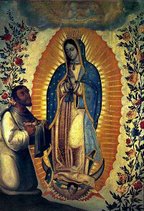
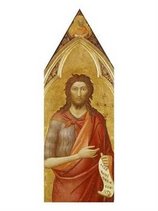


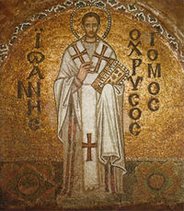
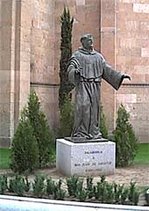

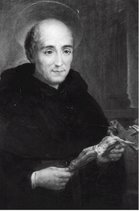
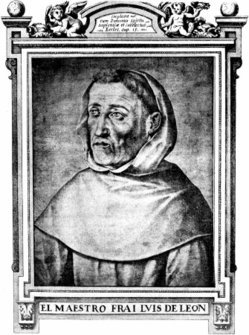
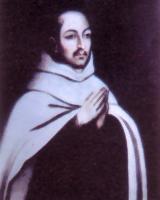



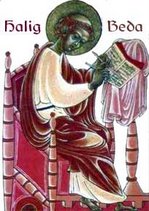
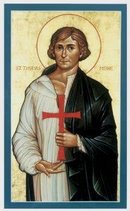
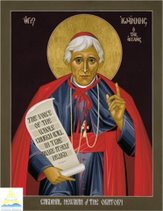




No comments:
Post a Comment